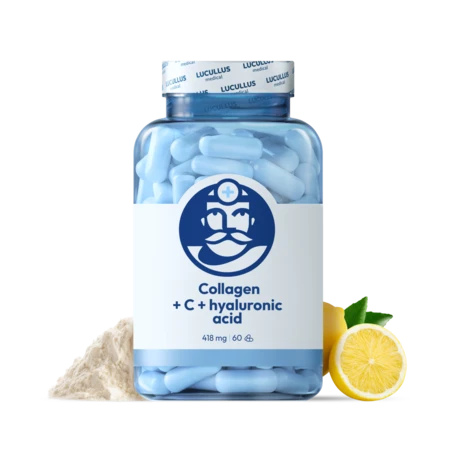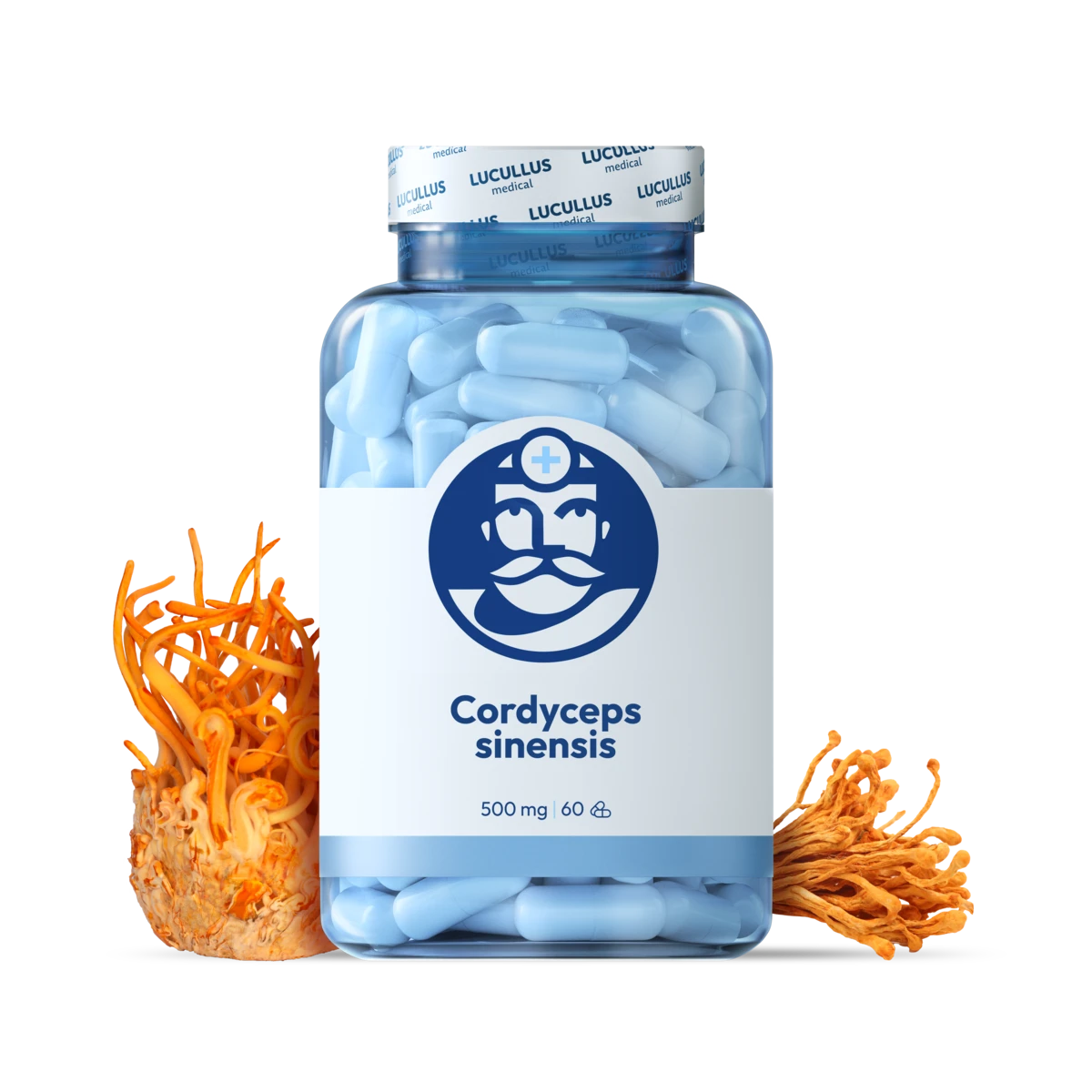
Cordyceps sinensis with an incredible life cycle
Have you heard about this fascinating fungus with its peculiar appearance and way of existence? The names „Chinese caterpillar, Himalayan gold or mushroom of longevity“ do not reveal much ...

Is iodine a necessity? ... Iodine - Kelp
Iodine is a trace element, with an interesting role in health, which we associate with the thyroid gland. It occurs naturally in the marine environment and one of the richest natural sources of iodine is kelp seaweed, also known as "Bladderwrack, Norwegian Laminaria," which has been used in traditional medicine and cuisine for centuries. Kelp can absorb large amounts of iodine directly from the ocean. The body needs iodine to produce thyroid hormones, without which much more would not work ... our metabolism would not function properly, we would have little energy, and our minds would be dull.

Collagen+C+Hyaluronic Acid - Recipe for Beauty and Youth
Everyone wants to do their best for their health, and when they delve into the study of dietary supplements, they soon realize that to meet the daily intake of all necessary substances, they would have to consume a considerable amount of capsules daily. Of course, as with everything, we must use common sense here as well.

Surprisingly Resilient Maca - Peruvian Cress
This remarkable plant (Lepidium mayenii) from the Peruvian Andes, where it is grown at extreme altitudes (4000 m a.s.l.). It is incredibly resilient and can survive and grow in conditions where most other plant species would not survive, such as low temperatures, strong winds, and intense UV radiation. Its ability to adapt to harsh environments enriches it with nutrients and substances that positively impact the human body, enhancing resistance to both physical and mental stress.

Histamine Control
Histamine is often perceived negatively, especially for its role in allergic reactions and intolerance. As with many things in life, black-and-white thinking is not suitable for this biogenic amine. As a neurotransmitter, it participates in many critical processes. In defending the body, for example, it supports the enlargement of blood vessels, making it easier for immune cells to access the site of inflammation. At the same time, it stimulates the production of gastric juices (essential for food processing), regulates the sleep cycle, controls appetite, and plays a role in learning, memory, and emotions. Histamine naturally occurs in the human body, and its balance is crucial for health. In the digestive system, it's broken down by the enzyme diamine oxidase. However, if histamine intake is greater than the body can break down, histamine intolerance develops. This imbalance can be caused by stress, poor lifestyle, medicines, or other factors. Excess histamine can lead to unpleasant symptoms, often resembling food allergies or digestive issues. It's essential to understand histamine as an important helper in our body.

Do we need the 'sunshine' vitamin D3 only in winter?
When you feel the sun's rays on your skin, know that your body is creating one of the most important vitamins - D3, which was discovered thanks to centuries of research. The discovery of vitamin D3 became one of the most significant medical achievements of the 20th century, saving millions of lives: It was the year 1650 and in the streets of London, doctors noticed that more and more children were suffering from a strange disease called rickets (their bones were weak and brittle, legs deformed, growth slowed). It wasn't until 1919 that Dr. Huldschinsky exposed children with rickets to ultraviolet light and their bones began to heal! Three years later, biochemist McCollum discovered a substance that prevented rickets and called it vitamin D. Gradually, the existence of the most important form of vitamin D3 (cholecalciferol) was discovered.













